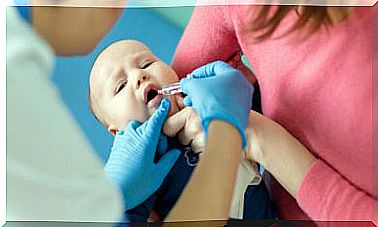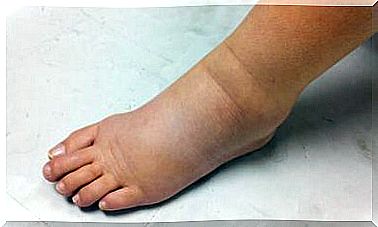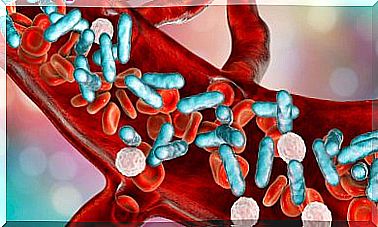5 Steps To Overcome Bacterial Gastroenteritis
Bacterial gastroenteritis occurs from an overgrowth of bacteria in the intestine. It is usually not serious and can be managed at home with some basic care. Discover them in this space.
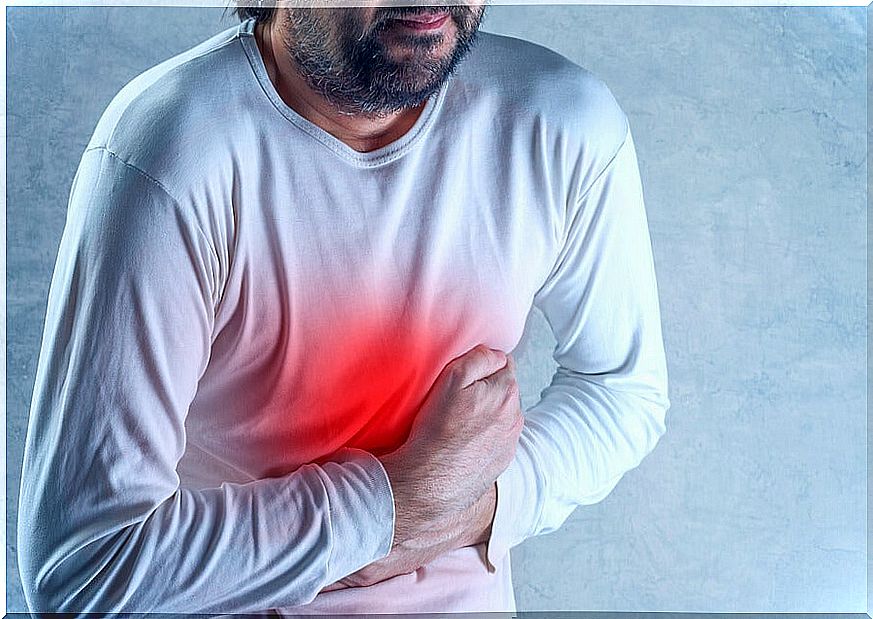
Bacterial gastroenteritis is a digestive disease that develops from inflammation of the stomach and intestines. It occurs when some pathogenic bacteria manage to proliferate in the intestine, leading to an infection.
This infection is easily transmitted from person to person or by contact with contaminated objects or food. In addition, it is frequent in those areas where the water is not treated properly. What are your symptoms? How can it be overcome naturally? Find out!
Symptoms of bacterial gastroenteritis
The symptoms of bacterial gastroenteritis can vary depending on the type of bacteria causing the infection. These can include: Staphylococcus , Salmonella, and E. coli . In general, according to a Mayo Clinic publication, the clinical manifestations of this condition include:
- Nausea and vomiting
- Diarrhea
- Abdominal pain and cramps
- Moderate fever
How to overcome bacterial gastroenteritis in 5 steps
To overcome bacterial gastroenteritis it is necessary to put into practice a series of tips that help accelerate the relief of symptoms. The most serious cases should be seen by a doctor, since intravenous fluids and salts and the use of antibiotics may be necessary. The steps to control it at home are:
1. Increase your fluid intake
Increasing the consumption of water and healthy fluids is essential to overcome bacterial gastroenteritis, especially after suffering episodes of diarrhea. Although many overlook it, the infection leads to dehydration that increases the risk of complications.
What should you do?
- Consume between 6 and 8 glasses of water a day.
- If you can, make rice water and drink it after you have diarrhea.
- Other healthy options include: drinking oral rehydration infusions, broths or serums with electrolytes.
2. Eat little to overcome bacterial gastroenteritis
Overloading the digestive system with a heavy diet is not the best alternative to deal with this infection. Since there are alterations in digestion, in addition to pain and inflammation, according to the Mayo Clinic publication mentioned above, it is best to eat little and more often.
What should you do?
- Start with a soft diet, based on broths and isotonic drinks.
- Then, gradually introduce astringent and low-fiber foods, in order to regulate intestinal function. If the evolution is favorable, you can eat foods such as: cooked rice cakes, white rice, potatoes and carrots, cooked ham, fish and chicken breast.
3. Avoid self-medicating
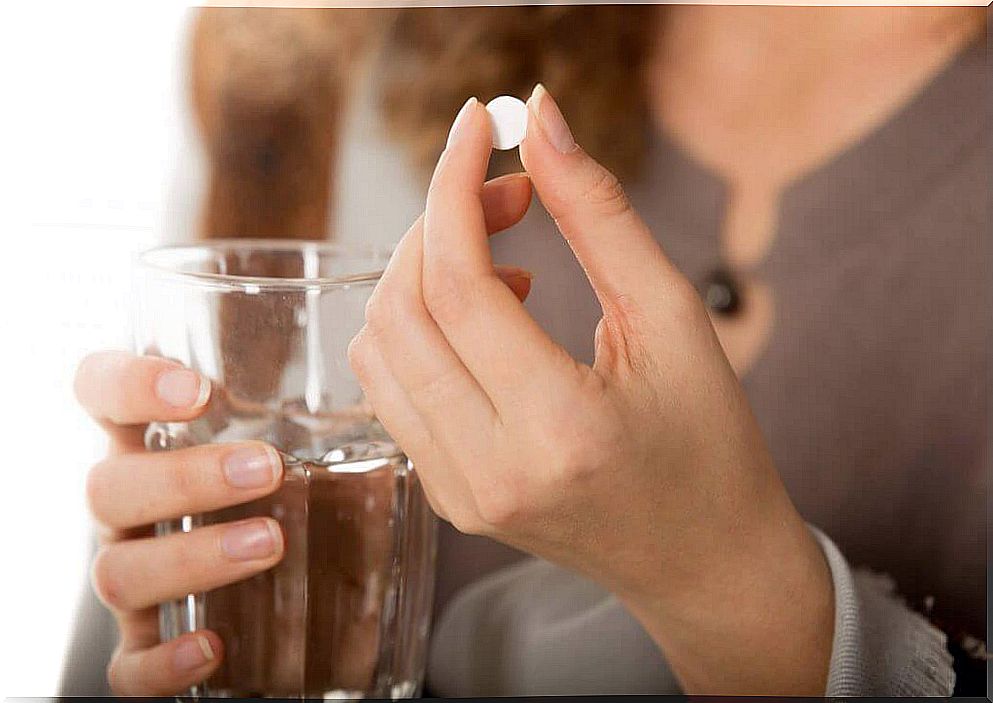
There are a wide variety of medications that can help treat discomforts such as abdominal pain, diarrhea, and nausea. However, although some are available over the counter, they should not be taken without medical supervision, as these can make the discomfort worse.
What should you do?
- If you have severe or persistent symptoms, ask your doctor what drugs can help control them.
- Avoid completely the use of antibiotics, as these should only be administered in severe cases.
4. Wash your hands constantly
Bacterial gastroenteritis can spread easily when there is not good hygiene. Therefore, to avoid infecting other people, it is essential to wash your hands constantly, especially after going to the bathroom or after changing diapers.
In relation to this, a study published in the Indian Journal of Medical Research indicates that this practice is one of the most efficient and easy ways to prevent the spread of bacteria and control infections. In addition, it helps to significantly reduce the infection rates associated with the health system in hospitals.
What should you do?
- Wash your hands with antibacterial soap and water for at least 15 seconds.
- If you can’t wash your hands, use an antibacterial gel.
- Make sure to repeat this action before handling food or having any contact with other people.
5. Handle food well
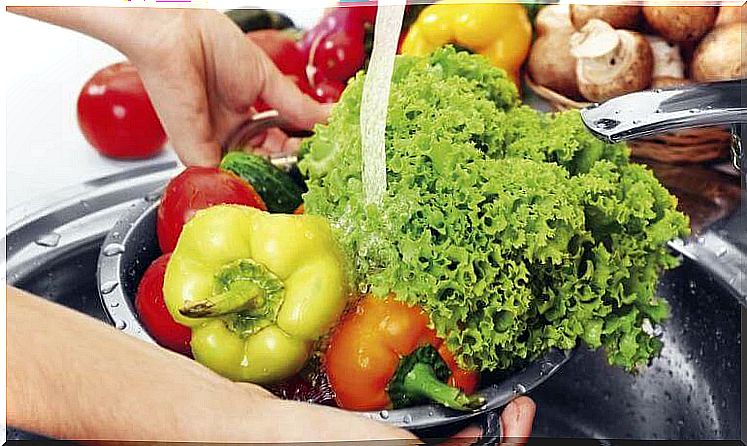
Proper food handling is key to overcoming bacterial gastroenteritis. In fact, according to research by Tropical Gastroenterology , many cases of this infection occur as a result of food contamination.
Therefore, you must pay close attention to delicate foods such as meats or those that are served raw. Do not forget that, before reaching the table, the food has passed through different places such as warehouses and transport vehicles.
What should you do?
- Wash your hands well before handling food. If you have the infection, avoid cooking.
- Wash and disinfect all fruits and vegetables that are eaten raw.
- Make sure you cook meat and fish well.
- Pay close attention to handling other foods like dairy and eggs.
Finally, it is necessary to bear in mind that the symptoms of bacterial gastroenteritis usually disappear on their own after three or four days, and some cases last up to two weeks. If after this time there is no improvement, the doctor should be consulted.
Also, you should seek immediate help if you notice signs of dehydration such as having a dry mouth and skin, sunken eyes, or crying without tears. Likewise, help should be sought in case of prolonged diarrhea, high fever or bleeding.

